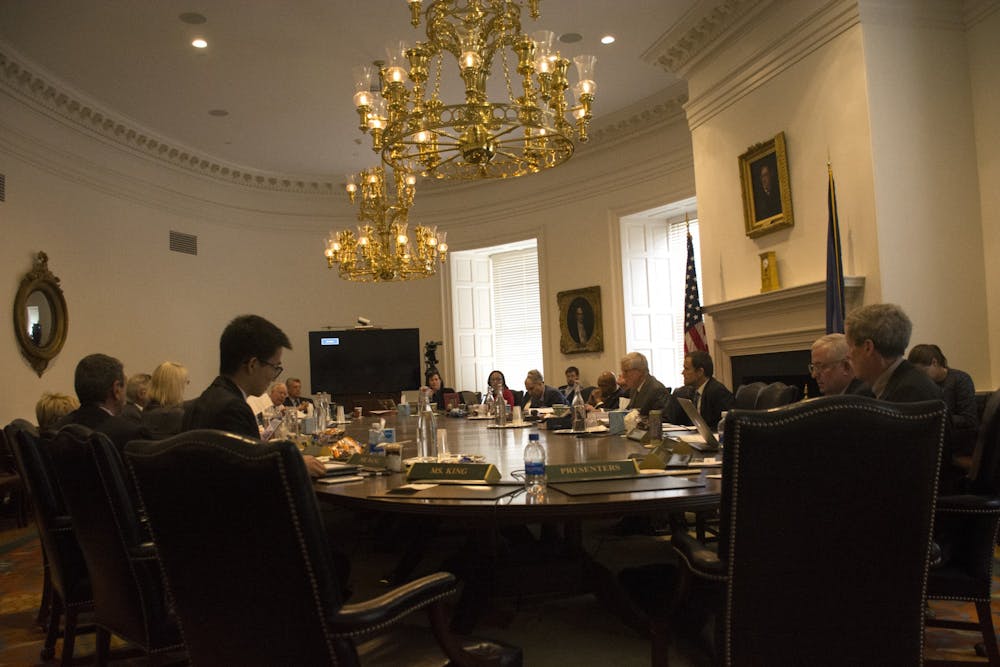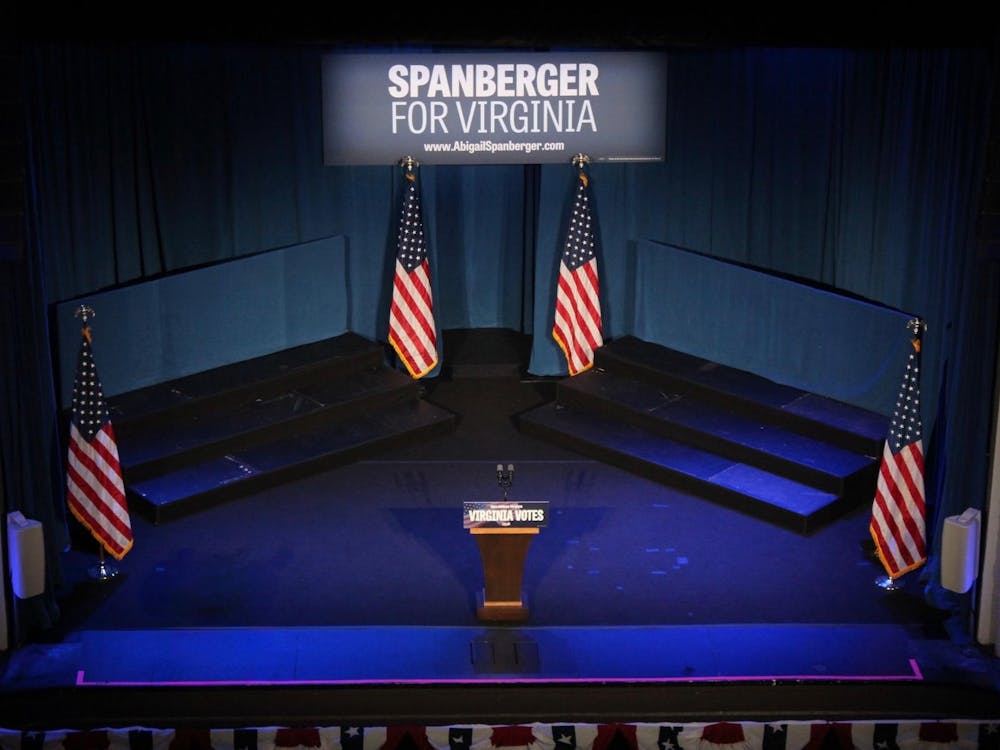The Board of Visitors’ Finance Committee convened Friday morning in the Rotunda to discuss upper-class housing construction, the 2020 legislative session — including a brief reference to a proposed bill regarding in-state tuition for undocumented students — medical contracts and the University’s endowment, the specifics of which were discussed in a closed session.
The meeting began with a brief overview and subsequent unanimous passing of a revised financial plan to increase the budget for the second phase of construction for upper-class student housing on Brandon Avenue from $95 million to $114 million. The increase in budget was attributed to an expansion of the project’s scope — the building for upper-class students will now hold 350 beds instead of 150.
The first phase of the Brandon Avenue upper-class housing project saw the completion of Bond House in August 2019. The Board of Visitors’ Buildings and Grounds Committee approved the schematic design for the second phase Thursday, which outlines plans for a residential building, a dining hall, informal gathering space and approximately 100 parking spots.
With the General Assembly still in session until Saturday, J.J. Davis, executive vice president and chief operating officer of the University, provided a general overview of bills relevant to the University proposed during the 2020 legislative session.
“[One] bill that we expect to be signed [by Governor Northam] is [about] students who attended high school in Virginia for at least two years and graduated from a public or private school in Virginia or homeschool program after July 1, 2018, and they’ve submitted evidence of at least one parent filing Virginia [income tax] residency for two years prior,” Davis said.
The bill to which Davis was referring passed the House, as HB 1547, and the Senate, as SB 935, and is understood by all parties involved to be aimed at expanding in-state tuition access to undocumented students. Davis did not explicitly make any reference to undocumented status in her brief overview.
Other bills described by Davis included a series of bills relevant to the Freedom of Information Act that allow members of the public to request access to records from any federal agency. However, records deemed to fall under certain exemptions that protect nine enumerated interests — including national security, trade secrets, personal privacy, law enforcement, and the supervision of financial institutions — are not required to be released under FOIA.
“One [bill] is focused around foundations and requiring more disclosure,” Davis said. “We are looking at that very carefully in terms of implications for our foundation.”
Additionally, Davis mentioned proposed bills related to minimum wage, with that of University employees having increased to $15 per hour starting Jan. 1.
During the March 2019 Board meetings, the Living Wage Campaign demonstrated outside of the Rotunda to draw attention to the University’s lack of progress on the issue of the minimum wage.
Shortly after the rally and the presentation of the University Working Group’s report, the University announced March 7, 2019 that it would increase its minimum wage for full-time employees eligible for benefits to $15 per hour. The minimum wage plan was updated and expanded to include contracted workers at the University Oct. 24.
Following a presentation discussing updates made to the Student Information System interface originally designed in the 1990s, Davis presented remarks about the University’s financial framework. She identified multiple areas of significance to be worked on and evaluated in the near future — one of the areas being employee health access and benefits, which she called “a very large cost driver.”
In her discussion of evaluating employee health access and benefits in the context of the University’s operational portfolio, Davis referred to two contracts that had been approved in a previous action item addressed earlier in the meeting regarding the execution of certain medical and pharmacy program administrative services.
According to Davis, the two contracts — one involving a re-negotiation with Aetna, the University’s current medical planning provider, and the other involving a switch to a new pharmacy vendor — would result in reduced administrative fees and approximate savings of $8 million. As contracts involving more than $5 million, they required approval from the Finance Committee, who unanimously approved them.
Robert Durden, chief executive officer and chief investment officer of the University of Virginia Investment Management Company, presented a report including an overview of the current market environment and the performance of assets invested for the long term. In 2019, the University’s endowment reached an all-time high of $9.6 billion.
After Durden’s presentation, the Finance Committee’s meeting transitioned to a closed session to discuss more specific information in regards to the investment of the University’s endowment.







